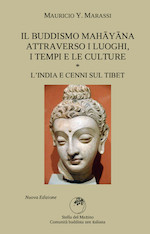It has been one year since the passing of Watanabe roshi.
Born in 1942, in Aomori, in the cold North of Japan. He did not have chance to meet his father, who was killed by an American fighter plane over the Pacific Ocean not long before his birth. After high school he should have enrolled in university, but – without a word to his family, who he knew were against it – he travelled to Daijoji (a monastery in Kanazawa in central Japan) where he asked to be welcomed as a novice. Daijoji was one of the places where, periodically Kodo Sawaki went to oversee the monks’ practice. The encounter with Sawaki was fundamental: in fact he advised young Watanabe to leave Daijoji and move to Antaiji, where Sawaki was the prior and also where Sawaki retired many years later. In Antaiji, where Watanabe was barely 20 years old, he met Sodo Yokoyama and Kosho Uchiyama, who were Sawaki’s two main disciples. Yokoyama, in 1957, left Antaiji to move to the park of Komoro, where he became famous as the “the monk who plays leaves.” Watanabe became Uchiyama’s disciple, superseded his master in 1975 and moved the monastery of Antaiji to the mountains of South West Japan. A place still impervious, hard to reach, literally on top of a mountain. From 1987 until 1992 he resided in Italy, giving origin to Stella del Mattino.
🌱In May 1978, with three other Italians, I went to Antaiji for the very first time. Of my three journey mates, one left after one week due to the severity of the order while the other two, Gianni and Daido, are not with us anymore. Watanabe roshi was young, full of energy and intimidating. He surprised us in his ability to “disappear”: a moment before he was there at your side, you raised your gaze and he was not there anymore. Only later I understood that this was due to the amount of dreams, thoughts we were lost in, dilating our time: it seemed to us as if he were there until “a moment ago”, but for him many more moments had passed and he had all the time to go somewhere else. Now I miss him mostly as an interlocutor: there are things I do not know who to tell. mym
🌱One evening in Antaiji he told us: “Even if this project should fail, I have many possibilities in mind.” I was speechless, sure that the immense task he voluntarily assumed on himself had no alternatives. He had only just moved the monastery, an unprecedented revolution in the dead sea of Japanese zen, he was setting a new life made of zazen work and study which demanded complete dedication to twenty young people full of enthusiasm and energy. He worked incessantly, present to any moment of community life with an iron focus. The incessant responsibility and total commitment were not weighing on his mind, which he kept clear. Like this he has always been, in the alternating of life’s happenings. A man sometimes terrible, never oppressive, able to burden himself without becoming a burden. gjf
🌱Watanabe roshi spent the first year of his stay in Italy at the community of the Saveriani missionaries of Reggio Calabria, which I was a part of at that time. Every day we shared zazen, prayers and the reading of the Christian and Buddhist scriptures. After the readings of the scriptures a short exchange of opinions often followed. It was Easter day and Watanabe Roshi told me “the Bible narrates the teachings of Moses and The Prophets for pages and pages. But then to announce resurrection, a woman of the streets was chosen, Mary Magdalene, who had an only way to announce resurrection: to resurrect herself.” From Watanabe Roshi I remember the sobriety of his speech and his demand of realistic behaviour: to announce resurrection by resurrecting. Luciano Mazzocchi, s.x.







